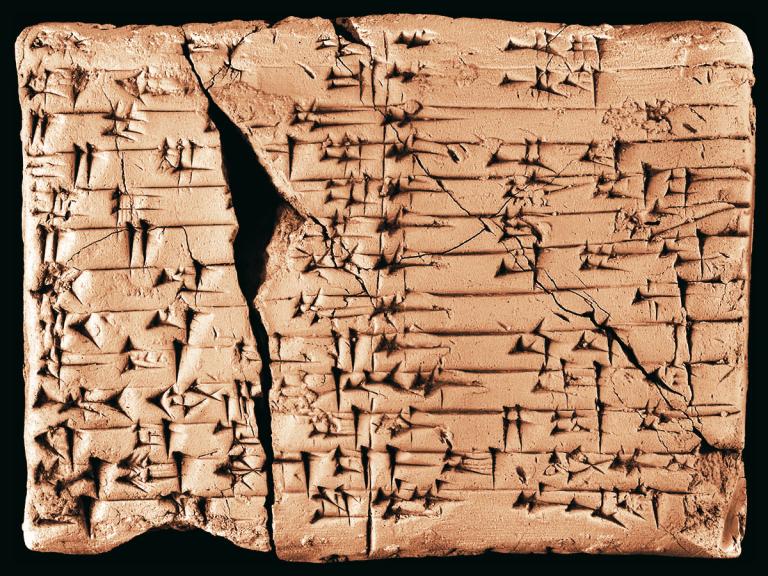
A discovery of two ancient tablets, estimated to be about 4,000 years old, appears to confirm the existence of a language for the ancient Amorite people, who are mentioned as adversaries of the Israelites throughout the Old Testament. The discovery is discussed in an academic paper entitled Two Remarkable Vocabularies: Amorite-Akkadian Bilinguals! written by researchers Andrew George, an emeritus professor of Babylonian Literature at University of London’s School of Oriental and African Studies, and Manfred Krebernik, professor and chair of ancient Near Eastern studies at the University of Jena in Germany. According to the article’s summary, the researchers reviewed two first editions of two cuneiform tablets, one from the Jonathan and Jeanette Rosen Cuneiform Collection and one from a private collection. The tablets are considered “unprovenanced objects” due to more than likely being smuggled illegally from Iraq during the first Gulf War.
Up until the discovery of the tablets, knowledge of the ancient Amorite language was basically non-existent, with just a smattering of words having been discovered. During the third millennium BC, nomadic Amorite tribes were moving into the Mesopotamian area, with Amorite words appearing in the lexicon of the Akkadian language. The Amorites would begin gaining power in the area, including some of the ancient kings like Hammurabi of Babylon, yet the dominant languages of business and learning remained Akkadian and Sumerian. This led many researchers to conclude that there was no specific Amorite language, but that it was rather a dialect of Akkadian. The researchers confirmed this prior mindset in an email to Live Science, writing, “Our knowledge of Amorite was so pitiful that some experts doubted whether there was such a language at all.” They added, however, that the tablets “settle that question by showing the language to be coherently and predictably articulated, and fully distinct from Akkadian.”
The tablets themselves contain many common, everyday items. The first tablet contains lists, such as deities and constellations, but also has whole passages written in Amorite, giving researchers clues as to Amorite grammar. The second tablet includes bilingual phrases in Amorite and Akkadian. “The two tablets increase our knowledge of Amorite substantially, since they contain not only new words but also complete sentences, and so exhibit much new vocabulary and grammar,” wrote George and Krebernik. Yoram Cohen, professor of Assyriology at Tel Aviv University, theorized to Live Science that the tablets may have acted as “guidebooks” for ancient Akkadian speakers needing to learn Amorite. “There are phrases about setting up a common meal, about doing a sacrifice, about blessing a king. There is even what may be a love song. … It really encompasses the entire sphere of life,” he said. Researchers noted the language bears a striking resemblance to the Canaanite language group, putting it in the same family as Hebrew and Aramaic. It is not exactly Canaanite, however, as it bears other features similar to Arabic. Although the discovery will help scholars as they uncover more about the Amorite language, many mysteries remain for them to discover about this ancient people.


